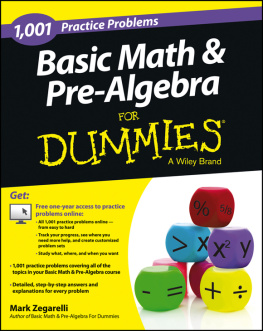Basic Books. - Lost in math: how beauty leads physics astray
Here you can read online Basic Books. - Lost in math: how beauty leads physics astray full text of the book (entire story) in english for free. Download pdf and epub, get meaning, cover and reviews about this ebook. City: New York, year: 2018, publisher: Hachette Book Group;Basic Books, genre: Art. Description of the work, (preface) as well as reviews are available. Best literature library LitArk.com created for fans of good reading and offers a wide selection of genres:
Romance novel
Science fiction
Adventure
Detective
Science
History
Home and family
Prose
Art
Politics
Computer
Non-fiction
Religion
Business
Children
Humor
Choose a favorite category and find really read worthwhile books. Enjoy immersion in the world of imagination, feel the emotions of the characters or learn something new for yourself, make an fascinating discovery.

- Book:Lost in math: how beauty leads physics astray
- Author:
- Publisher:Hachette Book Group;Basic Books
- Genre:
- Year:2018
- City:New York
- Rating:4 / 5
- Favourites:Add to favourites
- Your mark:
- 80
- 1
- 2
- 3
- 4
- 5
Lost in math: how beauty leads physics astray: summary, description and annotation
We offer to read an annotation, description, summary or preface (depends on what the author of the book "Lost in math: how beauty leads physics astray" wrote himself). If you haven't found the necessary information about the book — write in the comments, we will try to find it.
Basic Books.: author's other books
Who wrote Lost in math: how beauty leads physics astray? Find out the surname, the name of the author of the book and a list of all author's works by series.
Lost in math: how beauty leads physics astray — read online for free the complete book (whole text) full work
Below is the text of the book, divided by pages. System saving the place of the last page read, allows you to conveniently read the book "Lost in math: how beauty leads physics astray" online for free, without having to search again every time where you left off. Put a bookmark, and you can go to the page where you finished reading at any time.
Font size:
Interval:
Bookmark:
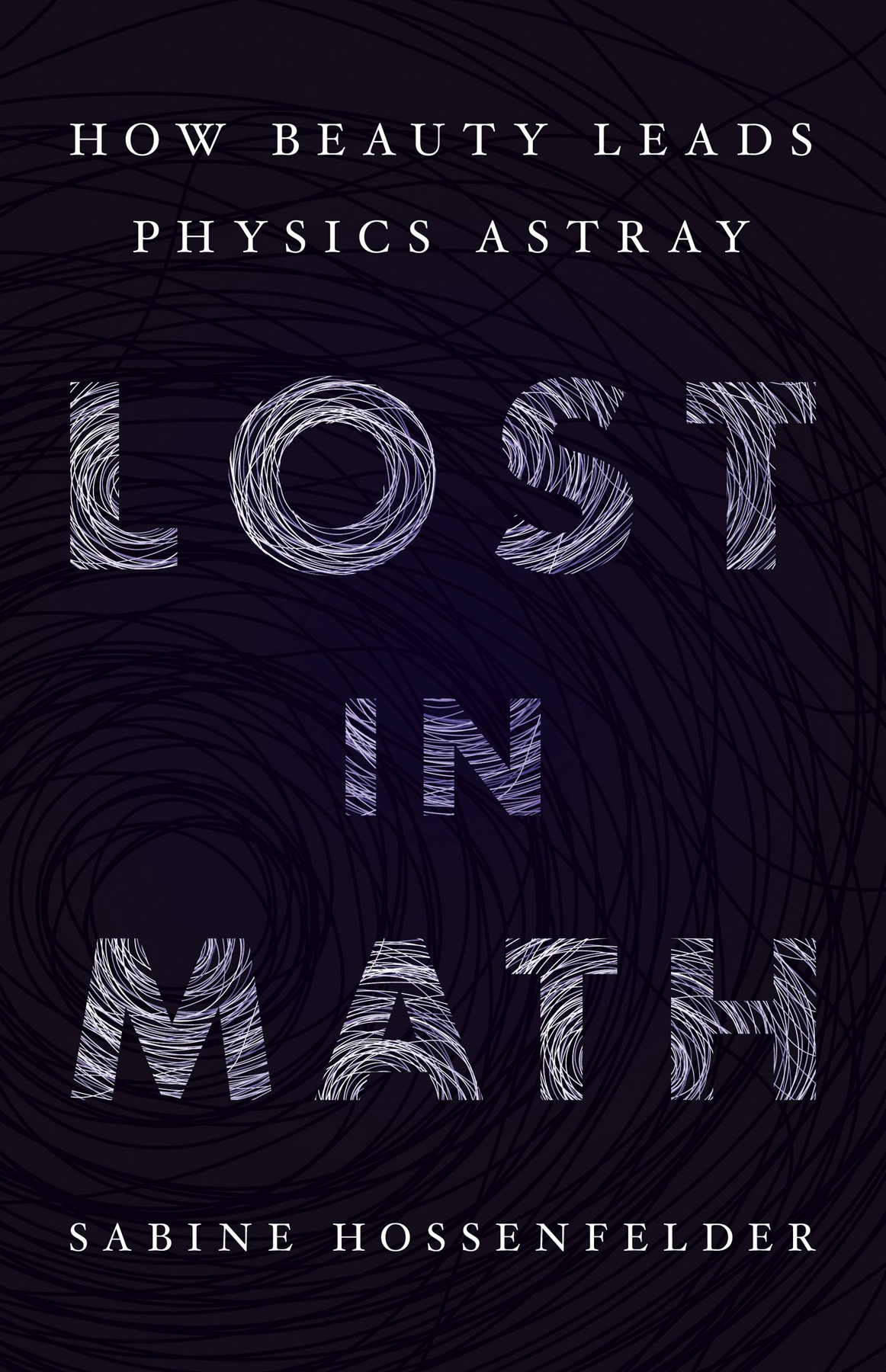
Copyright 2018 by Sabine Hossenfelder
Hachette Book Group supports the right to free expression and the value of copyright. The purpose of copyright is to encourage writers and artists to produce the creative works that enrich our culture.
The scanning, uploading, and distribution of this book without permission is a theft of the authors intellectual property. If you would like permission to use material from the book (other than for review purposes), please contact permissions@hbgusa.com. Thank you for your support of the authors rights.
Basic Books
Hachette Book Group
1290 Avenue of the Americas, New York, NY 10104
www.basicbooks.com
First Edition: June 2018
Published by Basic Books, an imprint of Perseus Books, LLC, a subsidiary of Hachette Book Group, Inc. The Basic Books name and logo is a trademark of the Hachette Book Group.
The Hachette Speakers Bureau provides a wide range of authors for speaking events. To find out more, go to www.hachettespeakersbureau.com or call (866) 376-6591.
The publisher is not responsible for websites (or their content) that are not owned by the publisher.
Silence
Words and Music by Sarah McLachlan, Wilhelm Leeb and Nowell Fulber
Copyright 1997 Sony/ATV Music Publishing LLC, Tyde Music, Chrysalis Music and Nettwerk Music Publishing
All Rights on behalf of Sony/ATV Music Publishing LLC and Tyde Music Administered by Sony/ATV Music Publishing LLC, 424 Church Street, Suite 1200, Nashville, TN 37219
All Rights on behalf of Chrysalis Songs Administered by Chrysalis Music Group, Inc., a BMG Chrysalis company
International Copyright Secured All Rights Reserved
Reprinted by Permission of Hal Leonard LLC
Library of Congress Cataloging-in-Publication Data
Names: Hossenfelder, Sabine, 1976- author.
Title: Lost in math: how beauty leads physics astray / Sabine Hossenfelder.
Description: First edition. | New York: Basic Books, [2018] | Includes bibliographical references and index.
Identifiers: LCCN 2017057165| ISBN 9780465094257 (hardcover) | ISBN 0465094252 (hardcover) | ISBN 9780465094264 (ebook) | ISBN 0465094260 (ebook)
Subjects: LCSH: Mathematical physics. | Cosmology. | Quantum theory.
Classification: LCC QC20.6 .H67 2018 | DDC 530.15dc23
LC record available at https://lccn.loc.gov/2017057165
ISBNs: 978-0-465-09425-7 (hardcover); 978-0-465-09426-4 (ebook)
E3-20180505-JV-PC
Experimental Search for Quantum Gravity (editor)
To Mom
Heaven holds a sense of wonder
And I wanted to believe
That Id get caught up
When the rage in me subsides
SARAH MCLACHLAN, SILENCE
T HEY WERE so sure, they bet billions on it. For decades physicists told us they knew where the next discoveries were waiting. They built accelerators, shot satellites into space, and planted detectors in underground mines. The world prepared to ramp up the physics envy. But where physicists expected a breakthrough, the ground wouldnt give. The experiments didnt reveal anything new.
What failed physicists wasnt their math; it was their choice of math. They believed that Mother Nature was elegant, simple, and kind about providing clues. They thought they could hear her whisper when they were talking to themselves. Now Nature spoke, and she said nothing, loud and clear.
Theoretical physics is the stereotypical math-heavy, hard-to-understand discipline. But for a book about math, this book contains very little math. Strip away equations and technical terms and physics becomes a quest for meaninga quest that has taken an unexpected turn. Whatever laws of nature govern our universe, theyre not what physicists thought they were. Theyre not what I thought they were.
Lost in Math is the story of how aesthetic judgment drives contemporary research. It is my own story, a reflection on the use of what I was taught. But it is also the story of many other physicists who struggle with the same tension: we believe the laws of nature are beautiful, but is not believing something a scientist must not do?
In which I realize I dont understand physics anymore. I talk to friends and colleagues, see Im not the only one confused, and set out to bring reason back to Earth.
I invent new laws of nature; its what I do for a living. I am one of some ten thousand researchers whose task is to improve our theories of particle physics. In the temple of knowledge, we are the ones digging in the basement, probing the foundations. We inspect the cracks, the suspicious shortcomings in existing theories, and when we find ourselves onto something, we call for experimentalists to unearth deeper layers. In the last century, this division of labor between theorists and experimentalists worked very well. But my generation has been stunningly unsuccessful.
After twenty years in theoretical physics, most people I know make a career by studying things nobody has seen. They have concocted mind-boggling new theories, like the idea that our universe is but one of infinitely many that together form a multiverse. They have invented dozens of new particles, declared that we are projections of a higher-dimensional space, and that space is spawned by wormholes that tie together distant places.
These ideas are highly controversial and yet exceedingly popular, speculative yet intriguing, pretty yet useless. Most of them are so difficult to test, they are practically untestable. Others are untestable even theoretically. What they have in common is that they are backed up by theoreticians convinced that their math contains an element of truth about nature. Their theories, they believe, are too good to not be true.
The invention of new natural lawstheory developmentis not taught in classes and not explained in textbooks. Some of it physicists learn studying the history of science, but most of it they pick up from older colleagues, friends and mentors, supervisors and reviewers. Handed from one generation to the next, much of it is experience, a hard-earned intuition for what works. When asked to judge the promise of a newly invented but untested theory, physicists draw upon the concepts of naturalness, simplicity or elegance, and beauty. These hidden rules are ubiquitous in the foundations of physics. They are invaluable. And in utter conflict with the scientific mandate of objectivity.
The hidden rules served us badly. Even though we proposed an abundance of new natural laws, they all remained unconfirmed. And while I witnessed my profession slip into crisis, I slipped into my own personal crisis. Im not sure anymore that what we do here, in the foundations of physics, is science. And if not, then why am I wasting my time with it?

I WENT INTO physics because I dont understand human behavior. I went into physics because math tells it how it is. I liked the cleanliness, the unambiguous machinery, the command math has over nature. Two decades later, what prevents me from understanding physics is that I still dont understand human behavior.
We cannot give exact mathematical rules that define if a theory is attractive or not, says Gian Francesco Giudice. However, it is surprising how the beauty and elegance of a theory are universally recognized by people from different cultures. When I tell you, Look, I have a new paper and my theory is beautiful, I dont have to tell you the details of my theory; you will get why Im excited. Right?
Font size:
Interval:
Bookmark:
Similar books «Lost in math: how beauty leads physics astray»
Look at similar books to Lost in math: how beauty leads physics astray. We have selected literature similar in name and meaning in the hope of providing readers with more options to find new, interesting, not yet read works.
Discussion, reviews of the book Lost in math: how beauty leads physics astray and just readers' own opinions. Leave your comments, write what you think about the work, its meaning or the main characters. Specify what exactly you liked and what you didn't like, and why you think so.

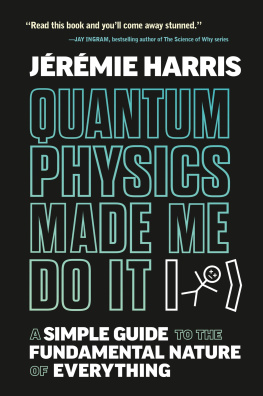
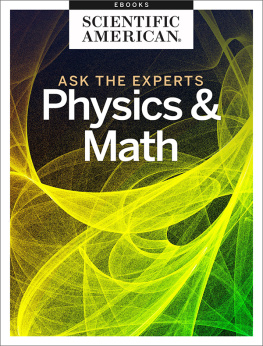
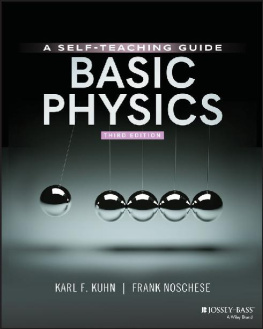
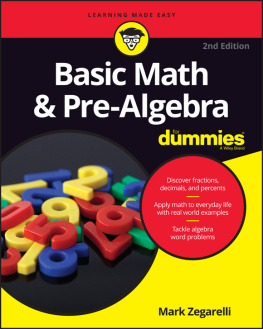
![Wendy Stahler [Wendy Stahler] - Beginning Math and Physics for Game Programmers](/uploads/posts/book/119084/thumbs/wendy-stahler-wendy-stahler-beginning-math-and.jpg)
![Debra Anne Ross [Debra Anne Ross] - Master Math: Basic Math and Pre-Algebra](/uploads/posts/book/119083/thumbs/debra-anne-ross-debra-anne-ross-master-math.jpg)
